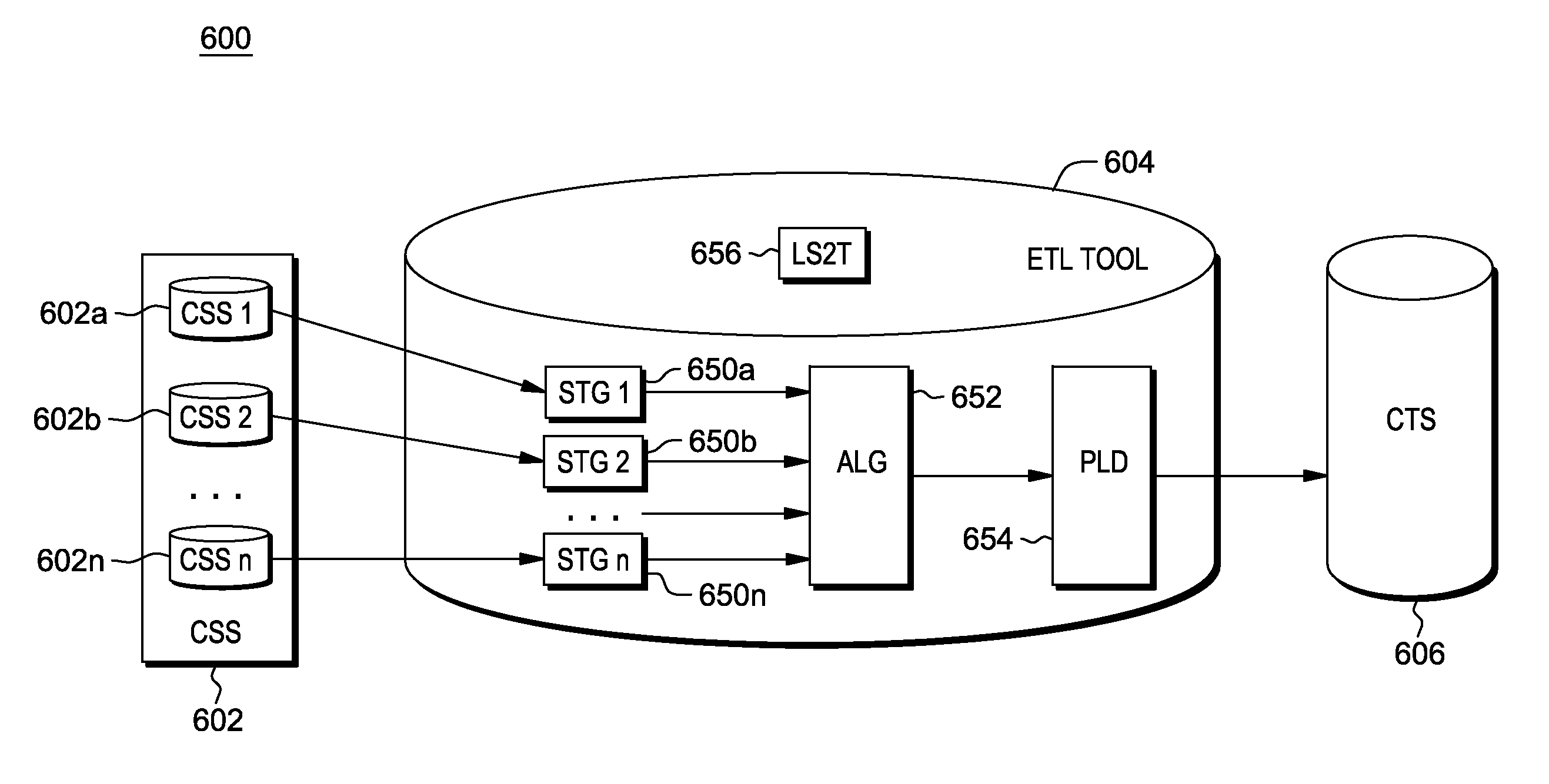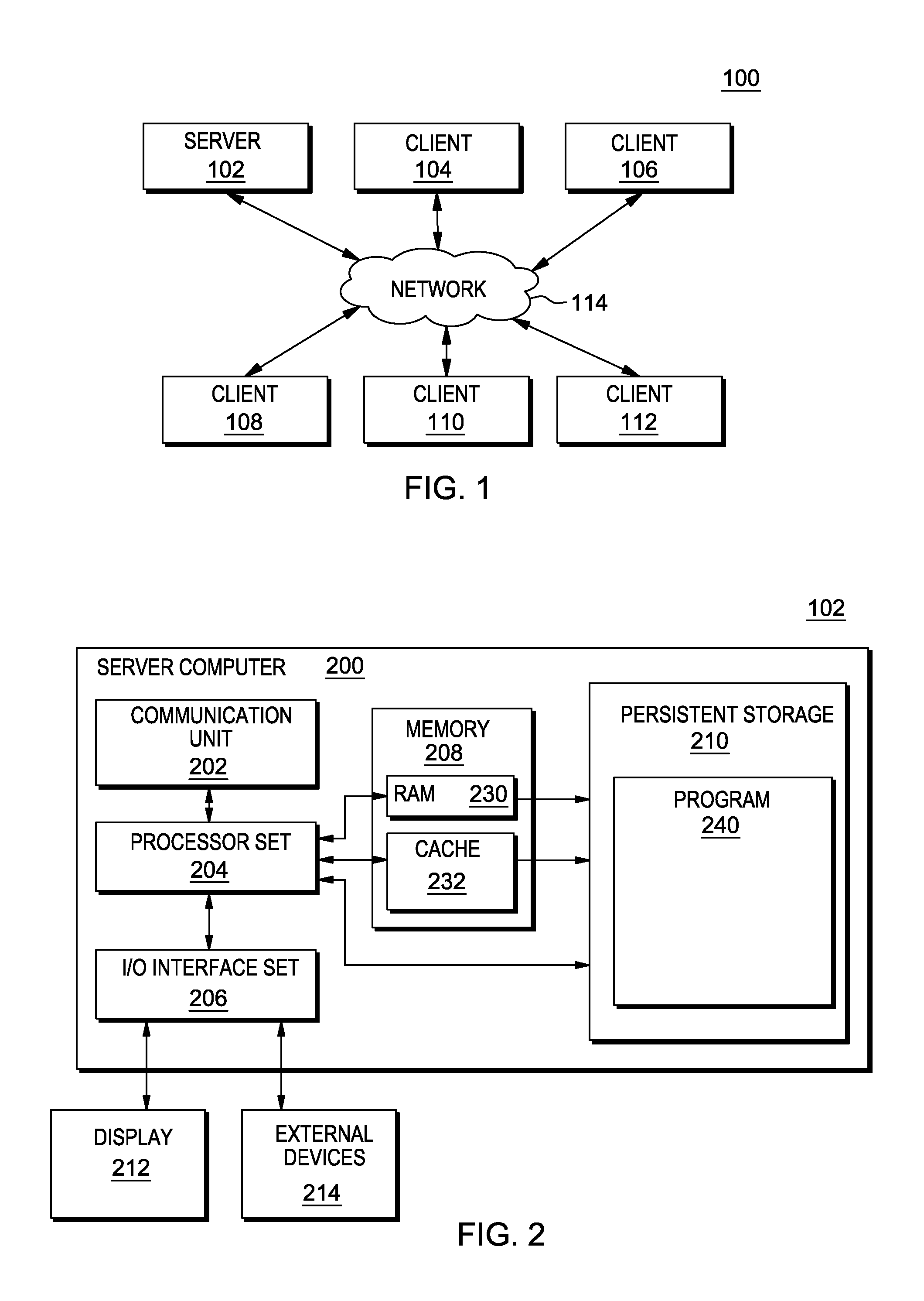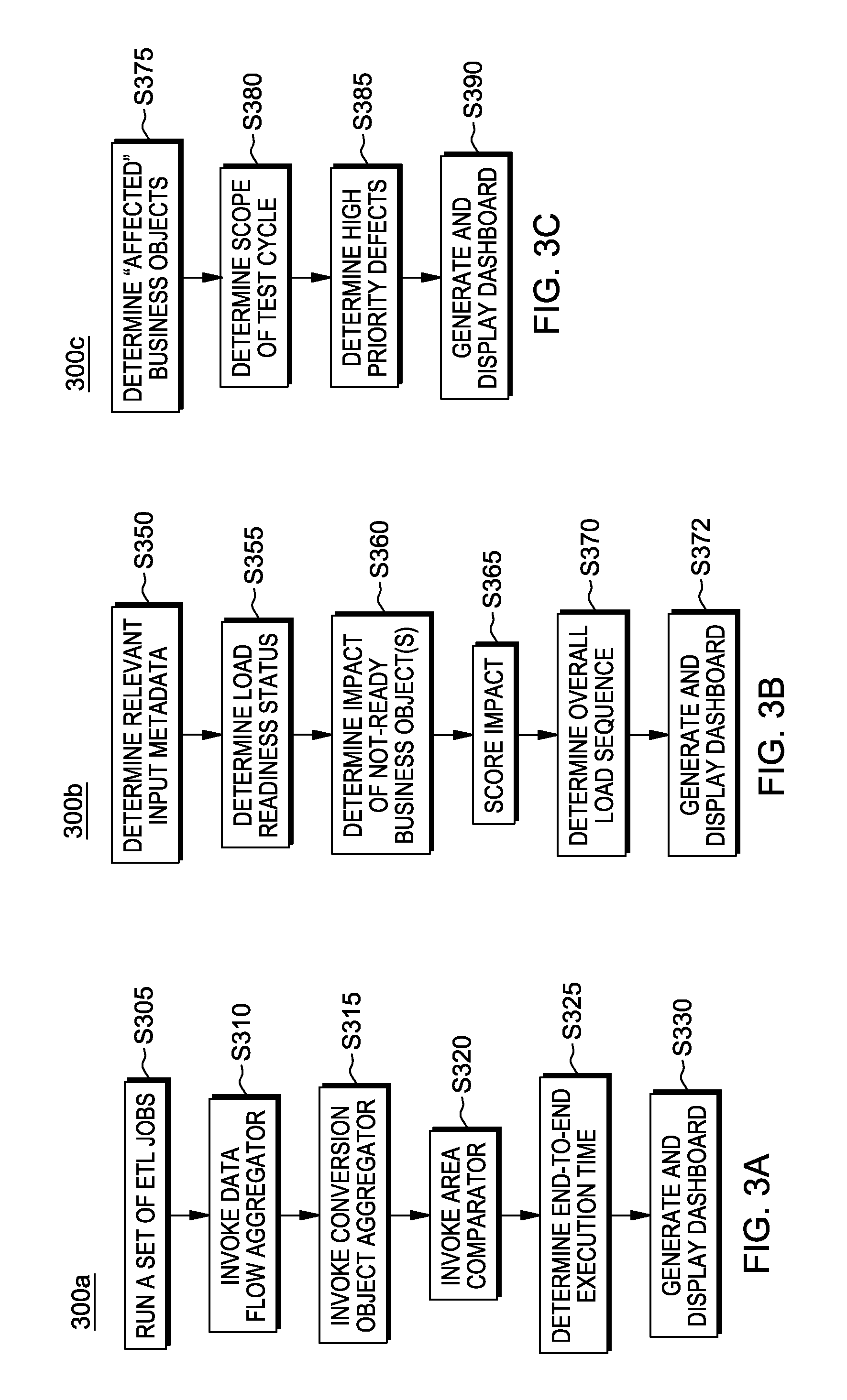Processing data in data migration
a data migration and data processing technology, applied in the field of data migration, can solve the problems of overrun of budget, add to the complexity and risk of the data migration workstream,
- Summary
- Abstract
- Description
- Claims
- Application Information
AI Technical Summary
Benefits of technology
Problems solved by technology
Method used
Image
Examples
first embodiment
[0034]Server computer sub-system 102 may be a laptop computer, tablet computer, netbook computer, personal computer (PC), a desktop computer, a personal digital assistant (PDA), a smart phone, or any programmable electronic device capable of communicating with the client sub-systems via network 114. Program 240 is a collection of machine readable instructions and / or data that is used to create, manage and control certain software functions that will be discussed in detail, below, in the First Embodiment sub-section of this Detailed Description section.
[0035]Server computer sub-system 102 is capable of communicating with other computer sub-systems via network 114 (see FIG. 1). Network 114 can be, for example, a local area network (LAN), a wide area network (WAN) such as the Internet, or a combination of the two, and can include wired, wireless, or fiber optic connections. In general, network 114 can be any combination of connections and protocols that will support communications betw...
embodiment 500
[0089]Alerters 552a to 552n bring attention to situations defined by end users through the configurator framework. In embodiment 500, the alerters provide alerts for: (i) critical milestones missed; and (ii) actual task durations that exceed estimates.
[0090]The displays of data conversion dashboard mod 506 and user interface mod 508 provide single-source portals for information display, depending on the user type.
[0091]As shown in FIG. 6, data to be migrated flows from conversion data sources 602, through ETL tool 604, to conversion target system 606. In embodiment 500, ETL tool 604 is a middleware conversion database, where data cleansing and harmonization occur (see FIG. 5). Each STG area is a schema grouping a number of tables that belong together, reflecting the source data model(s) 1:1 in the middleware conversion database (in other words, there is a staging area for each source system). These areas are used for: (i) data profiling, to avoid the high input / output load of data p...
PUM
 Login to View More
Login to View More Abstract
Description
Claims
Application Information
 Login to View More
Login to View More - R&D
- Intellectual Property
- Life Sciences
- Materials
- Tech Scout
- Unparalleled Data Quality
- Higher Quality Content
- 60% Fewer Hallucinations
Browse by: Latest US Patents, China's latest patents, Technical Efficacy Thesaurus, Application Domain, Technology Topic, Popular Technical Reports.
© 2025 PatSnap. All rights reserved.Legal|Privacy policy|Modern Slavery Act Transparency Statement|Sitemap|About US| Contact US: help@patsnap.com



